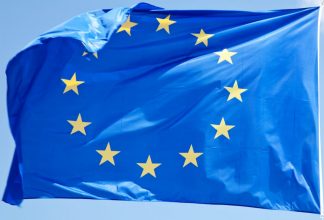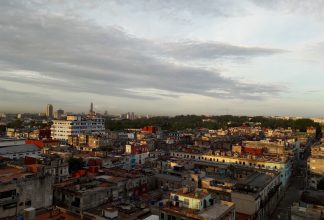Cuba Signs, but Does Not Comply with Agreements
Letter #11 by Alejandro Tur Valladares.
In July 2019, Civil Rights Defenders invited Cuban human rights defenders and civil society organisations to contribute with texts on how the European Union should work towards Cuba. This letter is written by Alejandro Tur Valladares.
Cuba Signs, but Does Not Comply with Agreements
Introduction:
The present work aims to provide a Cuban civil society’s view on the provisional application of the agreement between the European Union (EU) and Cuba subscribed in 2016; and on how the observance behaviour of the Cuban authorities and institutions has been; and how, in our opinion, the treatment that the EU should provide to the Republic of Cuba (rather than to the power in Cuba) should be defined in the future.
Context:
As is well known, the provisional agreement negotiated between the EU and the island in 2014 and subscribed during 2016 ended the Common Position adopted by the community of nations of the old continent, which prevented a fluid relationship with the authorities of the island as a result of the antidemocratic and repressive behaviour shown by the latter towards society.
The turn takes place in the middle of a changing scenario where expectations of change are lifted from the negotiations initiated by the administration of Barack Obama and Raul Castro. Apparently, everything pointed to a thaw between the old contenders, which motivated in the EU a rethinking of the strategy to follow to stimulate the transit of Cuban totalitarianism towards the composition of an open political system.
The agreement led to a new rapprochement from the European community with the Raul Castro regime without even verifying the will to change in the communist nomenclature. The authorities of the Communist Party of Cuba, with decades of experience in the hustle and bustle of politics, made calculations and saw the desirability of subscribing the PDCA with the EU; in the same way that they discovered the inlay in assuming the gifts that the American government had been offering them, all in order to oxygenate their battered coffers, without this implying a risky political investment.
Over time, it was demonstrated that the criteria defended by the majority of opposition political activists in Cuba, which indicated distrust of the good intentions of ‘Raulismo’, was correct. Given the historical experience and the deeply autocratic character of communist systems, undertaking genuinely democratic reforms means ending that political model. The ruling class made up of octogenarian leaders is not willing to do this, because among other aspects, it would mean sharing the power that for decades it has monopolised and being accountable.
Since then, what was anticipated has happened. The Cuban government has signed as many treaties as have been put on its table, only that in practice it has enforced those points that are convenient for it, wilfully omitting those it considers contrary to its interests.
For example, the provisional agreement with the EU is emphatic in asking the Caribbean side to respect the freedoms and human rights of Cuban citizens; however, although there have been variations in intensity, the repression against the rights and freedoms of individuals or groups not related to the Communist Party of Cuba has been a constant, having a peak these days.
How was the behaviour of the Cuban government after subscribing the provisional agreement with the EU?
Given a different scenario, the Cuban government opted for its repressive experience by adopting new cover-up forms. The repression took its course, only now it is less visible.
While incarcerations for political reasons declined; short-term arrests of opponents, beatings, and the obstruction of meetings and freedom of expression of prodemocracy and press groups were increasing.
Although during the negotiation stage with the EU, and the United States, some practices became more flexible (for example, the possibility that pro-democracy activists and independent journalists could travel abroad to participate in forums or receive training), during the last two years it has been observed a significant increase in government efforts to limit those freedoms. Under the “legal” excuse that they have called “Regulado for reasons of public interest”, individuals deemed uncomfortable for the government are denied the possibility of leaving the country. More than 150 people are affected by this, according to human rights organisations on the island. During the week I wrote this report, I learned of at least six cases of this practice, among which are journalists Manuel Alejandro Leon Vazquez, Luz Escobar, Adrian del Sol and Leandro Rodriguez.
The beatings of the Ladies in White are still happening week after week. Groups that the government does not control are prevented from religious activities, leading to the expulsion of religious leaders from places of worship. Recently, Cuban evangelical pastors (Ayda Exposito and Ramon Rigal, a married couple) were imprisoned for wanting to home-school their children.
The independent press is persecuted. Journalists are frequently summoned to police stations to be threatened. Work equipment is confiscated and even stolen. There are also defamation campaigns promoted by the political police, blackmail and even imprisonment, as it happened in September this year with the prominent journalist Roberto de Jesus Quiñones.
Now that Cuba begins to allow citizen participation in the Internet, the authorities have made this universe a new battlefield. It is common to clone profiles so that from the credibility of the owner his or her peers can be attacked. Identity theft is used to confuse, divide, and morally kill third parties, this without the victim having where to go to report.
At the beginning of the year, the constitutional reform was approved. Far from granting new freedoms, what it did was patch up some crevices, to shield its undemocratic nature and reinforce the omnipresent power of the Communist Party.
In the international sphere we must remember the seizure of weapons and spare parts made in the Panama Canal on a ship from Cuba bound to North Korea, a country that has an embargo and suffers EU sanctions. This fact violates some of the chapters contemplated within the provisional agreement.
Another highlight is the decisive and criminal support that the Cuban government is offering to the dictatorship of Nicolas Maduro in Venezuela. Cuban military instructors teach their South American peers’ novel techniques of social control through torture and forced disappearance of opponents, extending their oppression to this neighbouring country.
Although there are dozens of practices of the same oppressive nature, for reasons of space we will not show them. I just wanted to set on record that what is stated here is just the tip of the iceberg.
Recommendations:
History shows that communist-style dictatorships assume dialogues as a strategy to oxygenate their rusty structure. The only times they have been seen to give way have been under severe external pressures. Hence, we dare to recommend the following points.
- That the EU establishes a Commission to write a report where it is reflected whether there has been progress or not in achieving the proposed objectives.
- Condition all benefits to the Cuban government, regardless of their nature, to the observance of progress towards democratisation of Cuban society and its institutions.
- Increase contacts with actors that are role models within Cuban civil society, with special emphasis on those who seek a real openness.
- Show, through concrete gestures, solidarity with prodemocracy organisations, trade unions and independent journalists, among others.
- Report the repression committed by the regime in its attempt to delay the change, letting it know that the EU observes and that any attempt against universally recognised freedoms will carry a political cost.
- Ensure that financial aid that is directed towards the island benefits economic operators who have some autonomy, in the search to strengthen private activity.
- Provide decisive support with material and economic means to those who, in Cuba, in an extremely unequal struggle and at an incredible personal and family cost, struggle peacefully to transform a police state into a true republic.
- Do not sign a final agreement with the Cuban government until it is verified that the communist regime is opening spaces of freedom that allow the participation of all social actors regardless of the ideological flags or political agendas they defend.
Cienfuegos, Cuba, August 22, 2019
Alejandro Tur Valladares
About Alejandro Tur Valladares
Alejandro Tur Valladares was born in 1968 in Cienfuegos. In 2014, he joined the Christian Liberation Movement and the Varela Project signature campaign and began working as a freelance journalist at the Cubanacan Press Agency in Villa Clara. Then, he joined the Liberal Party of Cuba, led by the then political prisoner Hector Maceda Gutierrez, husband of the late Laura Pollan, founder and leader of the Ladies in White. He organised the party in the central region of the island. He participated as a director in the Central Opposition Coalition, directed by the former political prisoner Jorge Luis Perez (Antunez), and in Agenda Cuba, directed, among others, by Marta Beatriz Roque Cabello and Vladimiro Roca Antunez. He has directed the press agency Jagua Press and Cuba Hoy Noticias, which cover the central region.

